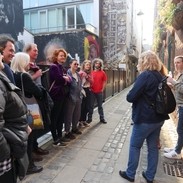Single use plastics
Getty Images/Digital Vision/Klaus Vedfelt

Disclaimer
Disclaimer: While every effort has been made to ensure the accuracy of the information contained in the Pink Book, we regret that we cannot be responsible for any errors. The Pink Book contains general information about laws applicable to your business. The information is not advice and should not be treated as such. Read our full disclaimer.
Key facts
It is illegal to provide plastic drink stirrers and cotton buds to customers.
There are significant restrictions on providing customers with plastic straws.
Single-use plastics
To reduce the level of plastic waste, the Government has introduced the Environmental Protection (Plastic Straws, Cotton Buds and Stirrers) (England) Regulations 2020.
These regulations make it an offence to provide customers with three different types of single-use plastic products: straws, cotton buds and drink stirrers. The regulations treat these different products in slightly varying ways.
Plastic drink stirrers
It is an offence to sell or supply drink stirrers to end-users and businesses in England. This means that it is an offence for you to be sold plastic drink stirrers by a supplier and for you to supply them to your customers.
Plastic cotton buds
It is an offence to sell or supply plastic cotton buds to end-users in England, but they can still be supplied to businesses. This means that you are to purchase plastic cotton buds if you need them for a purpose such as cleaning fixtures and fittings, but it is an offence for you to provide them to your customers.
Plastic Straws
It is an offence to sell or supply plastic straws to end-users in England, but they can still be supplied to businesses.
However, there is an exemption to this regulation for catering establishments, which includes restaurants, pubs, bars, cafés and hotel dining rooms. If you are providing food and/or drink for immediate consumption, you are allowed to continue to provide customers with single-use plastic straws, provided that:
- The straws are not kept in a place where they are visible to customers;
- The straws are not kept in a place where customers have access to them, and;
- The straws are not offered or provided to customers unless requested by the customer.
This means that you can provide a plastic straw to a customer if they specifically ask for one. You cannot serve a drink with a plastic straw in it, or put a box of straws on a counter for customers to help themselves.
It is also illegal to sell products such as cartons of drink with plastic straws attached.
The regulations are enforced by local authorities, who can inspect premises to ensure that businesses are complying, and are able to levy fines on businesses that are found to be in breach of the regulations.
Update
Note: From the 1 October 2023, the ban on single-use plastics has been extended to include the following:
- Single-use plastic plates, trays and bowls
- Single-use plastic cutlery
Balloon sticks
Ready-to-consume food and drink in polystyrene containers
The original ban on certain single-use plastics was introduced in 2020, and applied to three items:
- Plastic stirrers used for drinks such as coffee and tea;
- The provision of plastic cotton buds to customers;
- The display and provision of plastic straws to customers (unless they specifically ask for one).
At the time of the ban, the Government stated that this was the first step in reducing plastic waste and that more items would be added to the list in future, following consultation. In January 2023 it was confirmed that the ban would be extended to include single-use plastic plates, cutlery and polystyrene trays.
Further details have now been confirmed and the ban on the supply of these items will come into effect on 1 October 2023.
The items that will be banned are:
1. Single-use plastic plates, trays and bowls
This includes any item, regardless of the type of plastic (including recycled, compostable and biodegradable plastics) or how much plastic the item contains. For example, if the item is a paper plate with a plastic film to stop liquid penetrating the paper, it will still be banned.
There are two exceptions to this ban:
- Business-to-business sales. If you are supplying another business and not the end consumer, the use of these items is still permitted.
- Packaged food. This is food that is either pre-packaged or packaged at the point of sale, such as a plate filled at the counter of a takeaway.
2. Single-use plastic cutlery
Single-use plastic cutlery includes any item used to consume food, so it includes sporks and chopsticks.
3. Balloon sticks
These are the plastic sticks that attach to the nozzle of a balloon to enable children to carry the balloon.
4. Ready-to-consume food and drink in polystyrene containers
This includes polystyrene boxes for takeaway food (such as fish and chips and burgers), trays provided for food at food stalls, and polystyrene cups used to serve tea, coffee and soup.
There is, however, an exemption for providing food or drink in a polystyrene container if the item needs further preparation before it is consumed. So, for example, raw meat can be provided on a polystyrene tray because it needs to be cooked, and a cup containing coffee granules and sugar can be provided because it needs hot water to be added before it can be consumed.
The ban will be enforced by Local Authority inspectors who will have the power to inspect premises, obtain samples of the items in which the food and drink are being provided, and impose fines for non-compliance. Customers will be able to complain about non-compliance to Trading Standards.
Further guidance
Single-use plastics
Guidance on the regulations for single-use plastics is available on Gov.uk.







